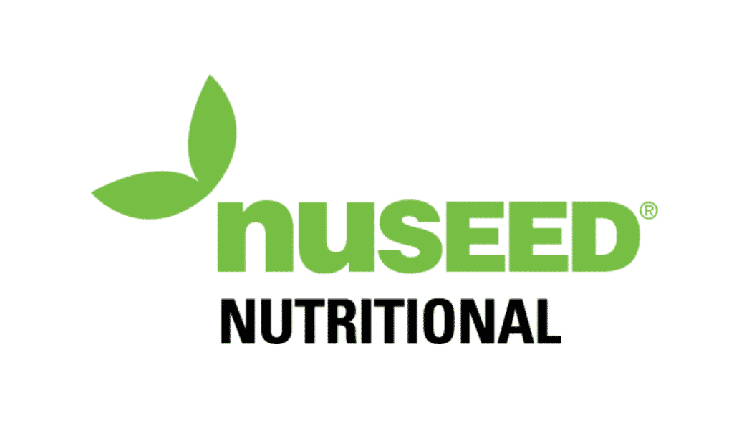Promotional Features
Rebalancing act: how a breakthrough in canola oil can help fulfill global DHA and EPA demand
A new plant-based and sustainable option to obtain omega-3 DHA and EPA is disrupting the natural foods and supplement industry.
While a significant body of research demonstrates that long-chain omega-3s are essential for maintaining human health, an alarming number of Americans are not consuming enough. “The average American consumes about 50 mg of long-chain omega-3 per day, far below recommendations to consume 500-1000mg of these nutrients daily,” says Doug Bibus, PHD, CEO of Lipid Technologies LLC.
Each year, Lipid Labs measures thousands of American blood samples for omega-3 levels using the Holman Omega-3 Test, and according to Dr. Bibus, 90% of those people tested have blood values of omega-3 that are considered below optimal/deficient. “Our nation is in an omega-3 crisis from lack of consumption and lack of adequate amounts of long-chain omega-3,” he adds.
The conventional American diet contains much more omega-6 fats from commonly consumed seed oils than long-chain omega-3 fats. Through the past four decades, there has been a clear dietary shift in the omega-6 / omega-3 ratio. In the early 1980s, the ratio was balanced, but by 2022, the ratio has shifted dramatically, according to a study published in Open Heart by Simopolous and DiNicolantonio (2016), creating a state that sets the stage for chronic inflammation, a known contributing factor in the development of many poor health conditions.
“Therefore,” continues Dr. Bibus, “any ingredient that can help increase omega-3 consumption is very positive.”
The challenges
While consumers understand they need to obtain more omega-3 long-chain polyunsaturated fatty acids (LCPUFAs) in their diets daily to protect their health, many are hesitant to take the fish oil products widely available on the market.
The challenges facing omega-3 supplement formulators include the fishy taste, and growing concerns about both sustainability of marine life and potential pollution of marine animals used for omega-3 EFA sourcing. There is a finite supply of oceanic fish and this is a source that is neither sustainable nor scalable to meet global requirements in the long term.
According to consumer research from Nuseed and Qualtrics, the top four reasons why one third of respondents were hesitant to consume omega-3 fatty acids were taste, cost, toxins and heavy metals contained in the marine source material, and burp back. Interestingly, demographically, “no harm to oceans” was the top trait consumers under 30 looked for when shopping for omega-3 supplements. And, of current omega-3 consumers, ocean health narrowly beat heavy metals/toxins as the top concern in this category.
According to 2019 data by Tocher et al, the worldwide demand for omega-3 EFAs surpasses 1.27 million tons each year, based on the typical recommendation to ingest 500 mg daily.1 However, the marine supply is estimated to be less each year, resulting in an omega-3 EFA shortage of up to one million tons.
Then there is the expense, which is increasing. “There's a lot of pressure on the demand side for fish oils, for aquaculture and other endeavors,” says Dr. Bibus. “That has also really driven the price up. It's expensive to acquire fish and process them. Some companies do it fairly well. But algae is another alternative, great technology. It's just really expensive to do compared to planting a field of canola.”
Plant-based sources of omega-3 EFAs have become a strong contender. Alpha-linolenic acid (ALA) has been long considered the only plant-based omega-3. Once it is consumed, it is metabolized into EPA, DHA and another important omega-3, docosapentanoic acid (DPA). But to obtain all these omega-3 EFAs, consumers would need typically to take two products.
Until Nutriterra – the first plant-source of DHA, EPA and DPA – all in one.
Plant-derived EPA & DHA
Nutriterra, a product and technology from Nuseed, is a plant-based oil that can dramatically increase consumer access to vital omega-3 nutrition, especially for individuals who can’t or prefer not to consume fish oil products.
Nutriterra has a unique oil profile that helps meet recommendations for omega-3 eicosapentaenoic acid (EPA) and docosahexaenoic acid (DHA), the critical fatty acids needed for normal brain and eye development and function, as well as for promoting healthy cardiovascular function.
Nuseed’s biotechnology program that produces omega-3 EFAs within canola (Brassica napus) provides the first plant-based EPA, DHA and DPA for human consumption. The technology also preserves oceanic ecology 3.5 acres of omega-3 canola produces as much DHA as 10,000 per 1kg fish, according to Dr. Bibus.
Researchers at Australia’s Commonwealth Scientific and Industrial Research Organisation (CSIRO) and Grains Research Development Council (GRDC), along with experts at Nuseed, selected canola as it provides a superior scalable platform for commercially sustainable production. Canola is also one of the world’s most abundant oilseed crops, cultivated on five continents.
The team introduced omega-3-producing genes copied from yeast and microalgae that are abundant in DHA and EPA to create the enzymatic pathway for canola to self-produce omega-3 EFAs from oleic acid already present in canola. Field testing confirmed that the canola did indeed contain significant amounts of DHA. This unique process was published in Frontiers in Plant Science (2020).
DPA: The emerging omega-3
While typical canola oils still favor omega-6 with a 2:1 ratio, the molecular biologists at Nuseed developed its canola to produce a greater number of longer chain omega-3 fatty acids and shift the balance of the omega-6 / omega-3 ratio to 1:4. “Nutriterra canola oil contains ALA, EPA, DPA, and DHA – all the four main omega-3s,” says Dr. Bibus.
DPA is an emerging critical LCPUFA that is a precursor to a family of molecules known as specialized pro-resolving mediators (SPMs) that are involved in resolving inflammation and regulating immune function, and may play key roles in inflammation-related gut, cardiovascular, joint, skin and neural conditions.
“The importance of DPA is becoming more well known as researchers begin to study its value and efficacy,” said Dr. Bibus. “We expect DPA will become more of a player in the supplemental LCPUFA market.”
And, it seems, so will plant-based omega-3 LCPUFAs, especially those from canola. The Nuseed and Qualtrics consumer survey also showed that four in 10 respondents who are interested in plant-based omega-3 products are most interested in consuming omega-3 canola; and current omega-3 users who are interested in plant-based omega-3 LCPUFAs are most interested in omega-3 canola. According to the survey, 41% chose omega-3 canola (with DHA, EPA, DPA and ALA), 9% more than flax (ALA only) at 32% and algae (DHA and EPA) at 27%.
The survey also showed that a high percentage, more than 75%, confirmed they would be willing to try Nutriterra products. A further 90% of respondents also recognized at least one advantage of omega-3 canola over fish or algae sources.
Improving omega-3 profiles
A new human clinical study demonstrated that Nutriterra consumption has outstanding absorption and provides improvements in omega-3 status and balancing the omega-6 / omega-3 ratio.
The randomized, placebo-controlled, 16-week study evaluated the pharmacokinetics and efficacy of Nutriterra omega-3 in healthy adults. Participants were randomly divided into groups receiving low, mid, or high-dose of Nutriterra providing 300, 600 or 1200 mg of omega-3 fatty acids respectively, or placebo. There were 33 participants in each group for a total of 132 in the study.2
The researchers found that compared to placebo, mid and high-dose omega-3 canola oil (Nutriterra) groups showed increased whole blood DHA, EPA, omega-3 score and omega-3 index after four weeks, as well as increased DHA and EPA in red blood cells after 16 weeks. The high-dose group showed an additional increase in ALA.
Overall, the researchers concluded, Nutriterra omega-3 canola oil demonstrated good bioavailability and significantly improved short and long-term omega-3 profiles, and that 16 weeks of daily Nutriterra supplementation was safe and well tolerated.
Dr. Bibus summarizes: “Nuseed’s technology is really a game changer for health product brands and for consumers – we can now get our EPA and DHA from a plant.”
References
1. Tocher D.R.; Betancor M.B.; Sprague M.; et al. Omega-3 Long-Chain Polyunsaturated Fatty Acids, EPA and DHA: Bridging the Gap between Supply and Demand. Nutrients (2019 Jan) 4;11(1):89. doi: 10.3390/nu11010089. PMID: 30621155; PMCID: PMC6356973.
2. Lin X.L.; Baisley J.; Bier A.; et al. Transgenic Canola Oil Improved Blood Omega-3 Profiles: A Randomized, Placebo-Controlled Trial in Healthy Adults. Front Nutr. 2022 Mar 10;9:847114. doi: 10.3389/fnut.2022.847114. PMID: 35360684; PMCID: PMC8960439.


